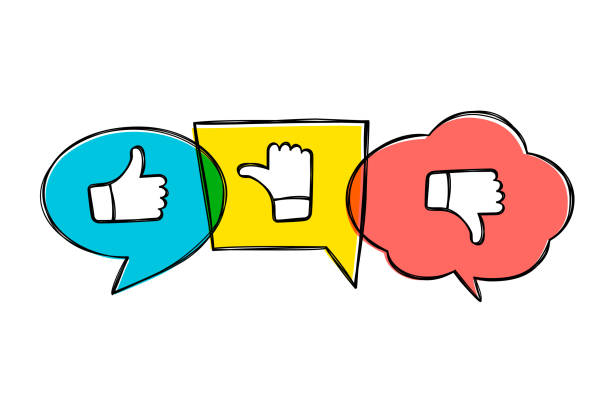Consumers should know the difference between constructive criticism and defamatory comments to avoid fines and penalties.
Imagine waking up to a legal notice or a call from the local police station for leaving a Google review on a business page. When you've had a bad experience with a service or product, you might want to share your dissatisfaction through a review, which seems harmless enough — until it isn't.
In the UAE, there are some cases in which you could find yourself in a legal battle and facing hefty fines over candid critiques or negative reviews as businesses grow increasingly vigilant about safeguarding their reputations.
Last year, for instance, a woman in Dubai was found guilty of defamation for an Instagram post that "damaged a hospital's reputation" after she posted a video clip calling it the "worst hospital" and saying that doctors did not know their job. A case was filed under the cybercrime law, and she was fined and asked to delete the video.
Similarly, in May 2020, the Public Prosecution convicted a woman for defamatory remarks posted about a medical centre on Google and Instagram. In her review, she criticised the centre for providing "the worst service you can imagine" and alleged that positive reviews on its social media platforms were fake.
The court fined her Dh5,000, confiscated her phone, and closed all her social media accounts. On appeal, the court upheld the charge, deeming the phrases used in the incident a crime of defamation.
The Viral Effect
In the age of social media, feedback has a much broader reach than traditional word of mouth, presenting new challenges, as reviews are no longer private and the risk of reputational damage by dissatisfied customers is higher.
Nikhat Sardar Khan, Head of the Corporate, DIFC Litigation, and Arbitration Department at Hilal & Associates Advocates & Legal Consultants, said, "Digital libel is considered more harmful due to its enduring nature, as it can be archived, made more interesting through real-time interactions like live streams, podcasts, and video recordings, shared to a global audience, made viral, posted anonymously, and accessed indefinitely."
But Can Businesses Sue Someone For Writing A Negative Review?
"It depends on the text of the review," Nikhat said. "If the review is insulting, exaggerating, malicious, misleading, incorrect, or advises others not to patronise the business, the provision of the penal code and cybercrime law will be applicable.
"A company can file criminal and civil cases to demand the restoration of reputation and compensation. Under Federal Law No 34 of 2021, online defamatory statements can lead to criminal charges. Civil lawsuits for damages can also be pursued simultaneously."
Constructive criticism or opinions based on genuine experiences generally do not constitute defamation as long as they are not insulting or made with malicious intent. However, even factual statements that lead to reputational damage can be considered defamatory.
Nikhat warned that there is a difference between a negative review and a defamatory one. "A negative review is a critique that expresses dissatisfaction with a product, service, or business based on the reviewer's honest and factual experience. These reviews, while critical, aim to provide constructive feedback without making false statements."
In contrast, a defamatory review contains false statements. Such reviews go beyond mere opinion or criticism, which can lead to legal consequences. Nikhat states, "Businesses and individuals can sue for defamation if they prove that the statements have caused harm or tangible damage. Reviewers must ensure their feedback is honest and not insulting or defamatory, causing reputational harm or tangible damage."
Why Reviews Matter
Jamaican restaurant Ting Irie has had its fair share of experiences with Google reviews, which they take seriously because "they can make or break the vibe and flow of the business."
Marketing and events manager Zubin Jaafar said, "Positive reviews are like gold — they validate our hard work and draw in customers curious to try our cuisine. Numerous tourists and customers from other emirates visit us, influenced by positive Google reviews and word of mouth.
"On the flip side, we've faced misunderstandings. For instance, our laid-back, Jamaican style of service and the authentic flavours unfamiliar to some customers have sometimes led to negative reviews. One reviewer mentioned the "slow service," mistaking our relaxed island vibe for inattentiveness. Another person thought our traditional Ackee and Saltfish were too unusual.
"These reviews can sting, but they push us to communicate our cultural authenticity better and improve the overall experience. It's a balancing act of staying true to our roots while adapting to the local palate."
Weighing on the importance of reviews, Mandeep Singh Chanana, general manager of Mister Baker, said, "Google reviews these days can impact businesses significantly.
"People want to validate a brand's credibility and reputation before spending money. Last week, I checked Google reviews before booking a hotel and changed my decision accordingly. People do the same before ordering food or even furniture.
"Most people who post reviews are genuine; they take the time to appreciate businesses or raise concerns that can help companies improve. We encourage our customers to post reviews and offer solutions to concerns raised."
Mandeep said establishments doing business ethically should not feel insecure about negative reviews. "It is an opportunity to understand your customers' expectations and serve them better."
Vidisha Bathwal, founder of catering company Paprika Dubai, concurs. "We always aim to give our customers a great experience, but we understand that not everyone will be happy.
We must handle negative feedback positively. Talk to unhappy customers and try to fix their issues. This helps lessen the impact of bad reviews and builds trust with other customers.
"Bad reviews, especially those left unfairly, can hurt a business and scare away potential customers. But in the end, honest reviews help people make better choices and push businesses to keep improving," Vidisha added.
What The Law Says
Defamation Law
Any person who publicly defames another individual by alleging a fact could face a jail sentence of up to two years or a fine not exceeding Dh20,000. Under Article 425 of the Penal Code, this offence is considered criminal. It aims to protect individuals from accusations or statements that may harm their reputation or subject them to legal consequences.
If the defamation is committed through publishing in a newspaper or publication, it is considered aggravating, which may result in a more severe punishment.
Article 426 deals with public insults that injure another person's honour or dignity without blaming a specific fact. Unlike defamation (Article 425), which involves claiming a specific defamatory fact that could result in punishment or contempt, Article 426 focuses on general offensive remarks or name-calling that degrade someone's honour or dignity without making particular allegations.
Under Article 428 of the UAE Penal Code, defamation is not a crime if the perpetrator can prove the incident attributed to the victim, explicitly involving public officials or persons assigned to public service. Thus, simply establishing the truth is only sufficient if it is related to the conduct of a public official in their official capacity.
Cybercrime law
Under the UAE cybercrime law, disseminating false information is strictly prohibited and carries severe penalties. It targets modern platforms used to spread, publish, re-publish, circulate, or re-circulate fake news or data or false, malicious, misleading, or incorrect reports or rumours that contravene officially announced news. Thus, it protects public health and public peace and combats the spread of false information and rumours that can have detrimental effects on society and public order.
Violators may face a penalty of imprisonment for at least one year and a fine of not less than Dh100,000. The penalty increases to two years in jail and a minimum of Dh200,000 fine if the crime was committed during pandemics, emergencies and crises.
Since the law targets explicitly false and misleading information, a critical defence is demonstrating that the information shared is accurate and is not intended to mislead or provoke to avoid penalties.
The law also aims to protect individuals from defamation and harmful statements made through digital means. It states that anyone who insults another person or attributes to them an event that may subject them to punishment or contempt by others shall be subject to detention and a fine. The minimum fine is Dh250,000, while the maximum fine is Dh500,000.
Consumer Protection Law
If a consumer has a bad experience, they can exercise their rights under Federal Law No. 15 of 2020 on Consumer Protection. This law ensures that consumers are protected and entitled to fair treatment, accurate information, and compensation for damage caused by defective products or poor services, holding businesses accountable for their actions.
Pursuing compensation under this law is more beneficial than seeking vengeance through reviews, as it provides a legal avenue to address grievances and obtain fair remedies for any harm suffered.
#uaenews #uaeupdate #google #reviews #feedback #uaelaws #customerfeedback



